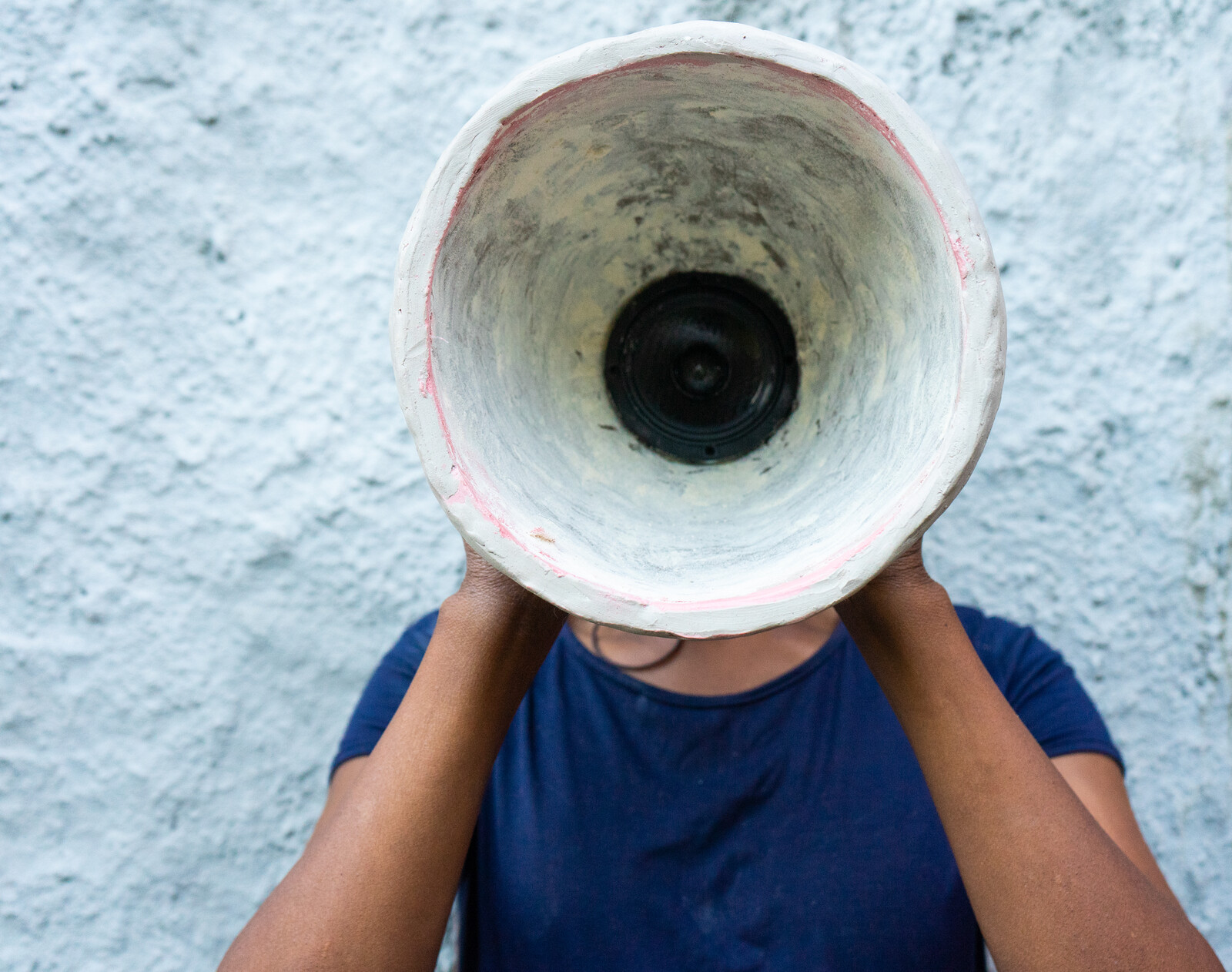Negotiating the Subtle Encounters: An Experimental Opera
June 19–August 15, 2021
Negotiating the Subtle Encounters: An Experimental Opera is an artwork by the contemporary visual artist Anawana Haloba drawing from African philosophy and operatic traditions as vehicles of a non-hierarchical comparative method to interrogate rootedness and empathy. The supposition that opera is strictly a European praxis is to be challenged at every opportunity. Haloba’s opera is created and composed borrowing from operatic conventions, knowledges, and sensibilities outside the European tradition, mainly from Southern Africa, such as Chiyabilo/Kuyabila and Budima from Zambia.
Haloba’s opera is a deconstruction of decoloniality, grounded in the Ubuntu philosophy of encounter. She writes, “We identify based on history, and history has a colonial past, which all human beings share either through the heritage of the colonised or the coloniser or by associations of ethnicity. Since we equally share a DNA of trauma, to fully accept responsibility for the shared trauma is the start of dialogue.”
Liar, liar!
You are scared because you see me in your reflection
Inconspicuous me, like a god I prey on you
I live in the unconscious you try so hard to suppress
I sit so silently in your history
To erase me would mean your demise
Denying means you are not wholly civilised
I tell you, my friend, see me
See me, see me, don’t just look damn it!
See me, see me, see… me!
Verily verily, I say at you.
To see is your only way to
Enlightenment.
No, Say no such things.
My ancestors have long stirred the history canon.
My history easily referenced to and read about
Even you have read and known it.
Her incandescent experimental libretto and composition is an extension of Haloba’s doctoral research and teaching practice, in which she brings a comparative approach to the writings of two thinkers, Frantz Fanon and Bjørnstjerne Bjørnson. The similarities between these two thinkers‘ articulation of women’s or the oppressed/minority’s role in the process of nationbuilding—despite their noticeable cultural, time and historical differences—open new possibilities for intercultural dialogues about feminism in postcolonial and contemporary society. Both thinkers engaged in playwriting, which led Haloba to search the operatic form.
Haloba’s artistic practice has long been symbiotically linked to and through exercises in drafting poetry in the form of fragments and sketches, which the artist abstracts to performative installations often involving moving image and sound. The multiplicity of collected experiences of the musicians, theatre artists, and singers (each from different backgrounds but who live in Norway) invites encounter. In some scenes, characters shift genders. The final music composition was scored by the artist, after a collaboration with a percussionist, who translated musical references and sonic imaginaries of the artist.
The work is a dialogue among non-gendered characters who transverse geographies, cultures, and societies, composed for these times. It engages with questions of environmental racism, the rise of nationalism in the western world, and immigrants’ plight. It evokes empathy by stirring the memory of trauma and a Norwegian history of seeking refuge, to rethink ideas of otherness and the seeking of refuge in the present. Haloba writes: “I imagine my project as a critical ‘time machine’ that continuously switches and conflates the two thinkers, their ideas and their historical, political, racial and cultural contexts, in an exhumed imaginary of sound and spoken-words.”
Anawana Haloba (b. 1978, Livingstone, Zambia) lives and works in Oslo and Livingstone. She is educated at the Evelyn Hone College of Applied Arts in Lusaka, Zambia. Haloba completed her BA at the National Academy of Arts in Oslo in 2006, is a graduate of the Rijksakademie van Beeldende Kunsten in Amsterdam, and is an alumnus of the Smithsonian Artist Research Fellowship in Washington, DC.
To learn more about Haloba´s work and artistic practice please visit here.

